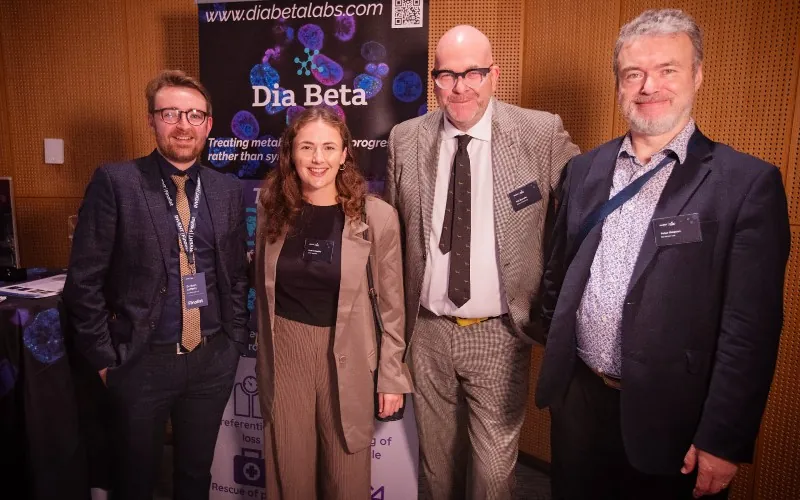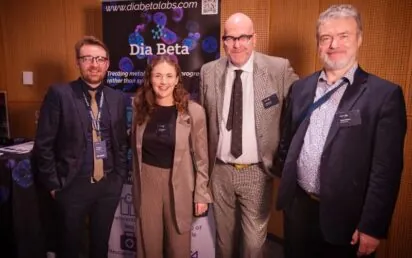Dia Beta Labs, a spinout from Ulster University, has raised £1.2 million to accelerate the development of a breakthrough treatment for obesity and type 2 diabetes.
This funding round was led by DSW Ventures with additional support from Northern Ireland-based QUBIS Ltd and Innovate UK.
With more than 4 million people in the UK living with diabetes and £10 billion per year spent by the NHS on related care, there is a pressing need for more effective solutions. Existing therapeutics, particularly GLP-1 analogues such as semaglutide – the active ingredient of high-profile Wegovy and Ozempic – have commanded the press in recent years.
However they are said to suffer from well-documented negative side effects – commonly including nausea, vomiting and diarrhoea – as well as poor long-term effectiveness and adherence.
Through combination with GLP-1 analogues, DBL’s lead candidate offers the potential for the same beneficial effects while allowing up to 2,000 times less of these drugs to be administered to minimise side effects. Crucially, it also avoids the issue of beta cell burnout, a problem that reduces the effectiveness of GLP-1 analogues over time.
Dr Ryan Lafferty, co-founder and CEO of Dia Beta Labs, developed the lead candidate during his PhD at Ulster University’s Diabetes Research Group. He advanced the technology through the ICURe program, validating its commercial potential and engaging with industry leaders before spinning the venture out of the University.
Dr Lafferty is supported by executive chair, Peter Simpson, who brings decades of experience in industrial drug discovery, scale-up, and leadership, including roles as chief scientific officer at the Medicines Discovery Catapult and Director of Discovery Science at AstraZeneca.
The investment from DSW Ventures and QUBIS leveraged additional funding from Innovate UK’s Future Economy Investor Partnership grant programme. This funding will accelerate key pre-clinical data packages and scale-up efforts, positioning the company to seek further investment and partnerships as it moves towards commercialisation.
“The widespread success of GLP-1s for weight management has certainly changed the management landscape in obesity, but high discontinuation rates mean that they represent an imperfect solution to a complex issue,” said Dr Lafferty.
“With the funding secured in this round, we will be able to significantly progress our path to clinic for DBL’s lead candidates which target greater fat vs muscle loss and provide a much-required alternative to GLP-1s for the majority of users forced to discontinue GLP-1s due to intolerance.”
Newcells bags another £1.2m for lab models that replace animal testing


